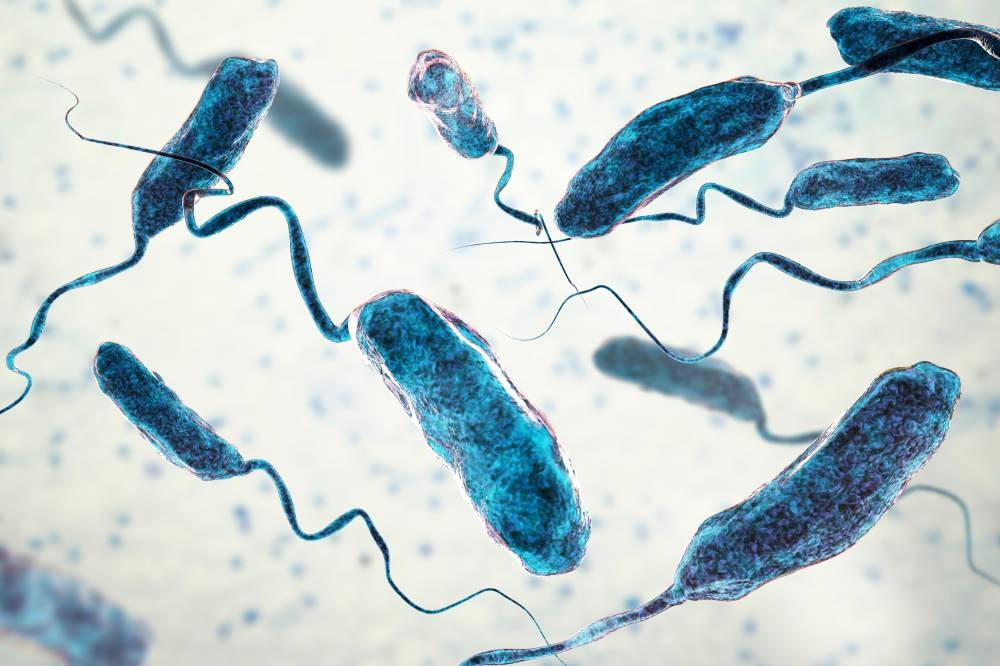Rehydration against Cholera

We may not hear much about cholera in Malaysia but in the aftermath of floods, it pays to be watchful.
If you don’t know how the cholera bacteria is passed around, the following may probably make you queasy. Fact: the cholera bacteria, Bacterium Vibrio Cholerae, is a bacteria that thrives via fecal to oral transmission.
This basically means, if someone with cholera goes to the toilet for number two, does not wash his/her hands properly, proceeds to prepare food and drinks which you then consume; and that -- is how you get cholera.
Cholera can cause severe dehydration if you consume tainted food or water. According to Consultant Internal Medicine Physician from Columbia Asia Hospital – Setapak, Dr Sudarwin Tjanaka, cholera incidences occur more often in places lacking water supplies and proper sewage disposal.

DIARRHOEA CAN BE EXHAUSTING
Cholera symptoms can literally leave you flat out and exhausted. You may find yourself repeatedly vomiting and passing loose watery stools, the latter essentially known as diarrhoea. “Diarrhoea is the main symptom of cholera and rehydration is the first priority when you experience diarrhoea. With timely rehydration therapy, more than 99 percent of cholera patients have high chances of survival,” said Dr Sudarwin.
“But stay away from drinks with high sugar content such as fruit juice, soft drinks or sports drinks as these can worsen the diarrhoea."
REPLACING LOSS OF MINERALS
If you are suffering from diarrhoea at home but can still sit up, which may indicate that you are not severely dehydrated, Dr Sudarwin recommends taking some oral rehydration solution (ORS) immediately.
This is a solution of electrolytes that is dissolved in water. It is to replace the water and minerals that your body loses when you have diarrhoea. If, in any case, ORS is not available, water, broth or other fluids, can also be consumed.
“For adults and young adults, the amount of ORS that needs to be consumed is 10ml every five minutes, until the patient stabilizes,” he advised.
“The approximate amount of ORS, in millilitres needed over four hours can also be calculated by multiplying the patient’s weight, in kilogram, by 75. If the patient requests more than the prescribed ORS solution, give more.”
WHEN SYMPTOMS IMPROVE
“Once the vomiting stops, patients should continue or resume a normal diet. Reassess the patient after one hour of this therapy and then every one to two hours until rehydration is complete,” added Dr Sudarwin.
“Note that the volume and timing are guidelines based on standard needs. If necessary, you can increase the amount and frequency, or you can give the ORS solution at the same rate for a longer period of time to achieve adequate rehydration. Similarly, you can decrease the amount of fluid if the patient becomes hydrated earlier than expected.”
WORST CASE SCENARIO
“However, for patients with severe dehydration, uncontrollable vomiting or extreme fatigue so much so that it prevents drinking, they will need intravenous fluids. If the patient is unable to swallow or the diarrhoea is severe, the attending doctor may have to admit the patient for intravenous dehydration, antibiotics and monitoring. The rapid loss of body fluids caused by diarrhoea not only leads to feeling very thirsty, but can also result in dehydration and shock.”
10 TIPS TO AVOID CONTRACTING CHOLERA:
-Drink only bottled, boiled or chemically treated water. For beverages, drink only bottled or ones that come in scanned packaging.
-When drinking bottled drinks, make sure the seal has not been broken.
-Carbonated water may be safer than non-carbonated water.
-Avoid tap water, water fountains and ice cubes.
-Disinfect your own water. Boil it for one minute, filter it and add either half an iodine tablet or two drops of household bleach per litre/quart of water or use commercial water chlorination tablets as per instructions.
-Wash your hands often with soap and clean water especially before you eat, when preparing food and after using the bathroom. If no soap and water are available, use an alcohol-based hand sanitizer with at least 60 percent alcohol.
-Use bottled, boiled or chemically-treated water to wash dishes, brush teeth, wash and prepare food and make ice.
-Eat foods that are packaged, freshly cooked and served hot.
-Do not eat raw undercooked meats and seafood. Do not eat raw or undercooked fruits and vegetables too unless they are peeled.
-Dispose faeces in a sanitary manner to prevent contamination of water and food resources.
KILL THAT CHOLERA BACTERIA!
Pathogenic bacteria is mostly killed at temperatures above 65 Celsius but to ensure the water you have collected is safe for consumption, follow the steps below: -If the water is cloudy, either let it settle or filter it using a coffee paper filter or a clean piece of cloth before you boil it.
-Bring the water to a rolling boil; when water is boiling vigorously with lots of bubbles.
-Allow the water to boil this way for at least one minute.
This article was contributed by Consultant Internal Medicine Physician from Columbia Asia Hospital Setapak, Dr Sudarwin Tjanaka.










